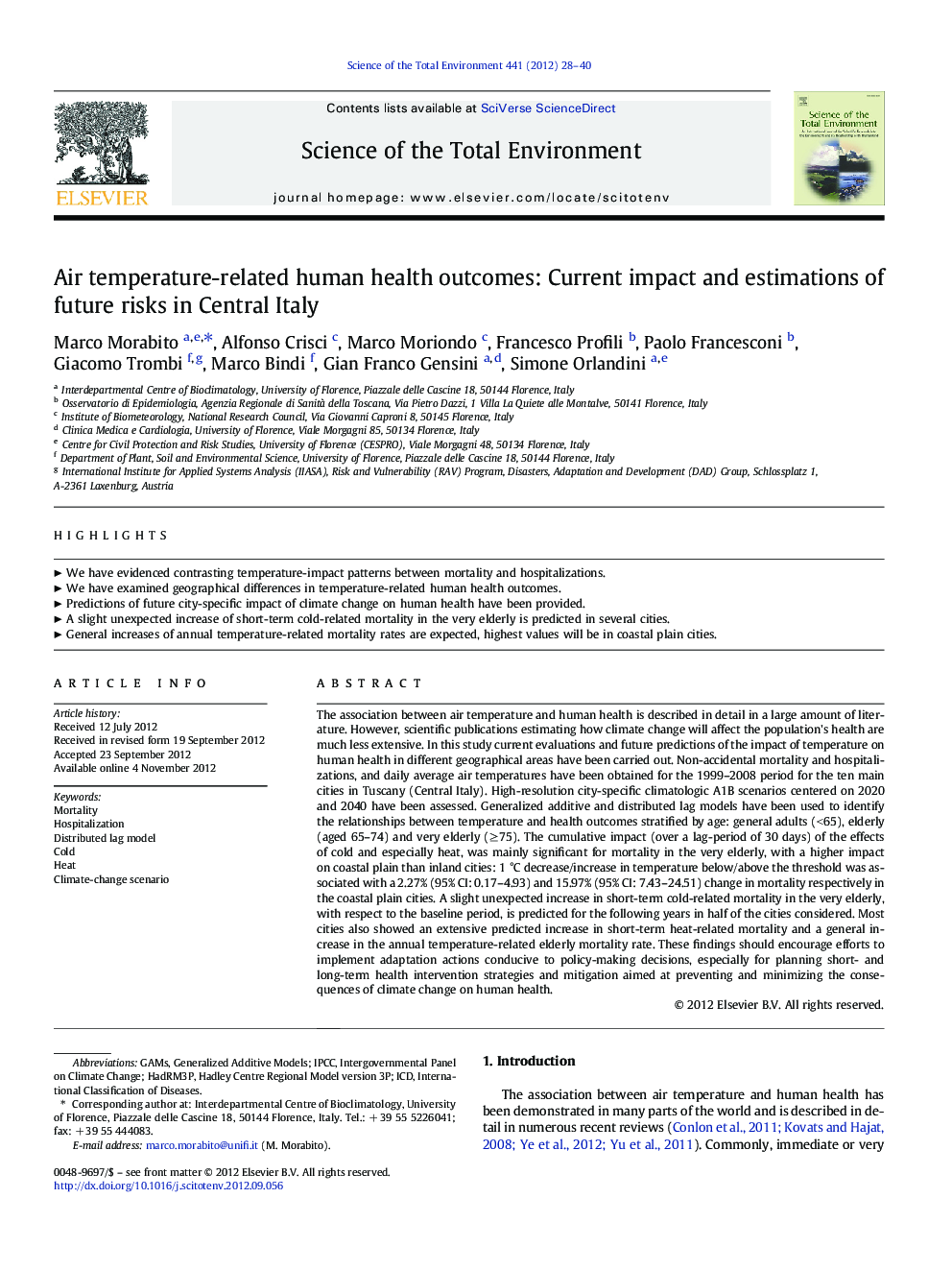| Article ID | Journal | Published Year | Pages | File Type |
|---|---|---|---|---|
| 4429143 | Science of The Total Environment | 2012 | 13 Pages |
The association between air temperature and human health is described in detail in a large amount of literature. However, scientific publications estimating how climate change will affect the population's health are much less extensive. In this study current evaluations and future predictions of the impact of temperature on human health in different geographical areas have been carried out. Non-accidental mortality and hospitalizations, and daily average air temperatures have been obtained for the 1999–2008 period for the ten main cities in Tuscany (Central Italy). High-resolution city-specific climatologic A1B scenarios centered on 2020 and 2040 have been assessed. Generalized additive and distributed lag models have been used to identify the relationships between temperature and health outcomes stratified by age: general adults (< 65), elderly (aged 65–74) and very elderly (≥ 75). The cumulative impact (over a lag-period of 30 days) of the effects of cold and especially heat, was mainly significant for mortality in the very elderly, with a higher impact on coastal plain than inland cities: 1 °C decrease/increase in temperature below/above the threshold was associated with a 2.27% (95% CI: 0.17–4.93) and 15.97% (95% CI: 7.43–24.51) change in mortality respectively in the coastal plain cities. A slight unexpected increase in short-term cold-related mortality in the very elderly, with respect to the baseline period, is predicted for the following years in half of the cities considered. Most cities also showed an extensive predicted increase in short-term heat-related mortality and a general increase in the annual temperature-related elderly mortality rate. These findings should encourage efforts to implement adaptation actions conducive to policy-making decisions, especially for planning short- and long-term health intervention strategies and mitigation aimed at preventing and minimizing the consequences of climate change on human health.
► We have evidenced contrasting temperature-impact patterns between mortality and hospitalizations. ► We have examined geographical differences in temperature-related human health outcomes. ► Predictions of future city-specific impact of climate change on human health have been provided. ► A slight unexpected increase of short-term cold-related mortality in the very elderly is predicted in several cities. ► General increases of annual temperature-related mortality rates are expected, highest values will be in coastal plain cities.
